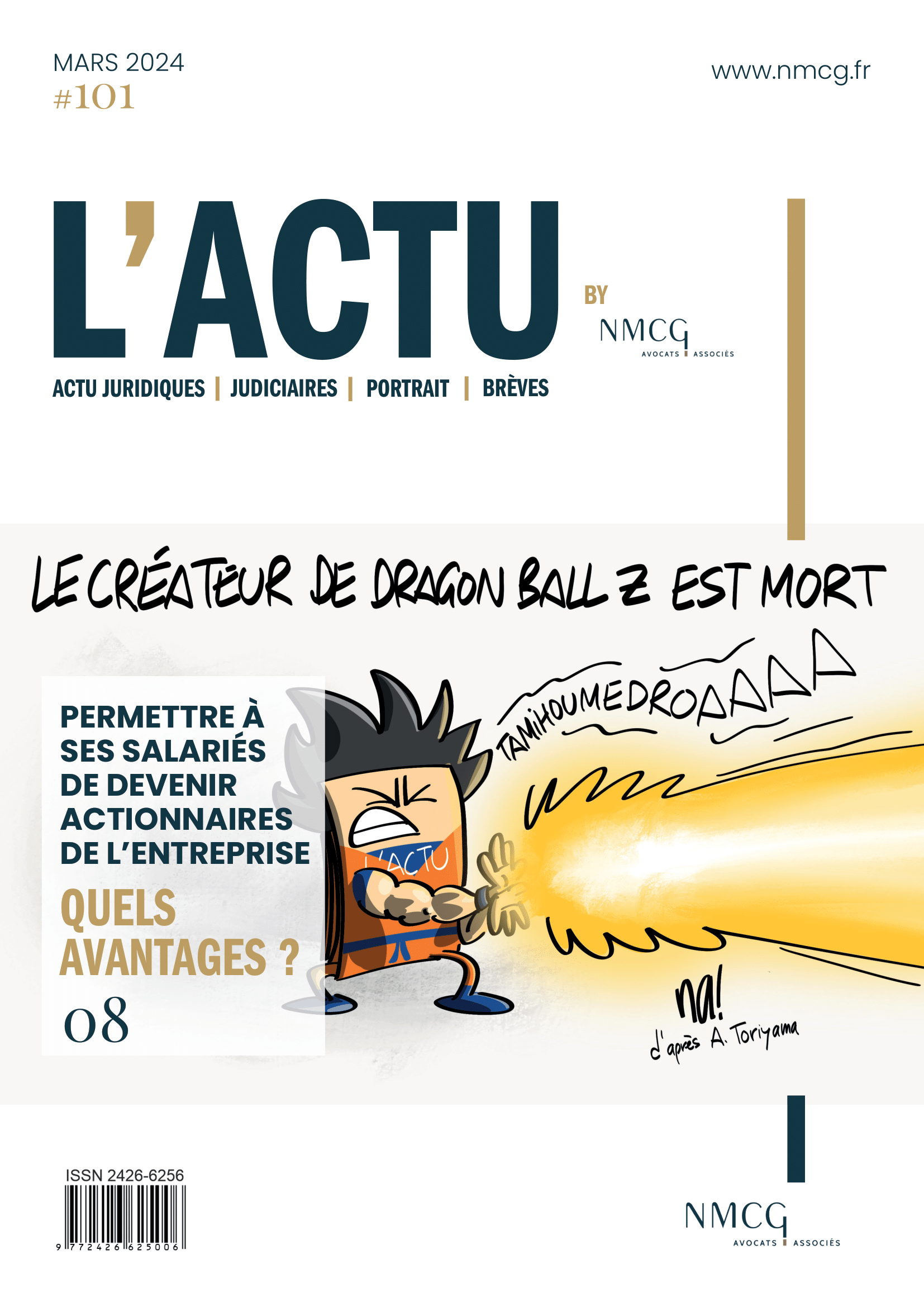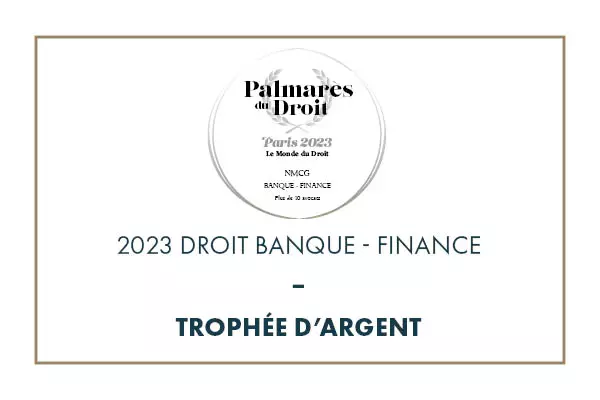Bonding: clarification of the informed character […]
1 January 2023
The provision of a bond is one of the most common guarantees in the business world.
Very often, the director of a company will act as guarantor in favour of a credit institution as a guarantee for a loan contract granted to the company he represents.
In practice, a significant amount of litigation related to surety bonds has developed.
Indeed, the guarantee is very often contested by the guarantor when :
- It is disproportionate to his assets and income
- The principal creditor has failed in its duty to warn the guarantor when the secured loan turns out to be unsuitable for the borrower’s financial capacities.
Over the past year, the law on guarantees has evolved with the entry into force of the provisions of the Order on the reform of the law on securities, No. 2021-1192 of 15 September 2021, which codified these two principles, even though guarantees taken out prior tost January 2022 remain subject to the provisions prior to this reform.
- Focus on guarantees taken out since 1 January 2022
The new Article 2288 of the Civil Code, resulting from the 2021 Ordinance, defines a surety bond as “a contract by which a surety undertakes to pay the debtor’s debt to the creditor in the event of the latter’s default”.
Two new articles have been created in the context of the relationship between the natural person guarantor and the principal creditor:
- Article 2299 of the Civil Code provides for a duty of warning on the part of the professional creditor towards the natural person guarantor when the loan granted to the borrower, the principal debtor, proves to be unsuited to the latter’s financial capacities.
Failing this, the creditor is deprived of his right against the guarantor to the extent of the damage suffered by the latter.
- Article 2300 of the same Code creates a sanction when the guarantor’s commitment is considered disproportionate to the guarantor’s assets and income on the day of his commitment: the guarantee is reduced to the amount to which he could have committed himself on the day of his commitment.
These articles shall only apply to bonds entered into on or after 1st January 2022.
However, to date, the majority of bond litigation relates to bond contracts entered into prior to 1st January 2022.
- The status of informed guarantor for guarantees taken out before 1st January 2022
Prior to the new regulation, case law had already imposed on the Bank a duty to warn the uninformed guarantor.
Two bases were used in the context of litigation between guarantors and professional creditors:
- The former Article L. 332-1 of the Consumer Code, which provides that a professional creditor cannot take advantage of a guarantee contract concluded by a natural person whose commitment was, at the time of its conclusion, manifestly disproportionate to his or her assets and income, unless the assets of this guarantor, at the time when he or she is called upon, enable him or her to meet his or her obligation.
- Article 1147 of the Civil Code, in its wording prior to that resulting from the Order of 10 February 2016, on the basis of which it has been established by case law that the bank has a duty to warn a guarantor uninformed when, on the day of his commitment, the latter is not adapted to the financial capacities of the guarantor or if there is a risk of indebtedness resulting from the granting of the guaranteed loan, which results from the unsuitability of the loan to the financial capacities of the borrower (Court of Cassation, Commercial Chamber, 15 November 2017 n°16-16.790).
Thus, while the duty to warn is recognised with regard to the guarantor as well as the borrower, the main creditor (very often the bank) only has a duty to warn with regard to the lay or uninformed guarantor.
This is what is at stake in this dispute: knowing whether the guarantor and the borrower can be considered as informed or not in order to allow them, if need be, to take advantage of a potential breach of the duty to warn by the main creditor.
Informed character is not defined by the texts. It is assessed on a case-by-case basis by judges according to clues, which has led to numerous decisions by the Court of Cassation.
While it has already been recognised that the informed nature of a guarantor cannot be deduced from his or her capacity as a manager alone, a recent decision has clarified the informed nature of the guarantor:
Court of Cassation, Commercial Chamber, judgment of 9 November 2022, no. 20-18.264:
The manager of a company operating a pizzeria business, whose CV was available on the LinkedIn website, complained that the Bank had failed to warn him as an allegedly uninformed guarantor.
The guaranteed loan in this situation was for the financing of a pizzeria business.
The manager explained that, although he had held positions of responsibility in the retail sector, in no case did his experience “reveal any knowledge of the professional field of catering, and in particular the operation of a pizzeria, which was the activity financed by the guaranteed loan”.
The Court relied on the professional experience of the manager:
“The judgment notes that it results from the termination agreement of his employment contract, produced in the debates, that between 1 March 1983 and 19 September 2007, Mr. [F] held a managerial position in the company Carrefour as a purchasing expert. It notes that, on his LinkedIn profile, Mr [F] states that he holds a master’s degree in economics and management, has management skillsIn addition, he was responsible for the management and arbitration of the footwear, household linen, accessories and babycare markets from a commercial and financial point of view, and developed and implemented validated action plans with the support of a team of category managers. It notes that, by virtue of his training, professional experience and skills, Mr [F] was able to assess the risks specific to the guarantee he provided for the project of Tasc’co, a company he set up and managed in order to operate a pizzeria restaurant business under a franchise, after prior market research.
On the basis of these findings and sovereign assessments, the Court of Appeal was able to hold that Mr [F] was a knowledgeable guarantor towards whom the bank was not bound by a duty to warn. “
Thus, according to this decision, the director of a company that has taken out a loan cannot accuse the credit institution for which he has acted as guarantor of failing in its duty to warn, since, given his training, professional experience and skills, which were posted on his profile on the LinkedIn website, the director appears to be well-informed and able to assess the risks of his guarantee.
Another recent decision has clarified the notion of informed borrower.
Court of Cassation, Commercial Chamber, judgment of 4 January 2023, no. 15-20.117:
In this case, four employees of a company X had set up a holding company Y in order to acquire all the shares in company X.
To finance this acquisition, a loan was granted to company Y, guaranteed by the surety of one of its managers, Mr M.
The latter accused the bank, which had granted a loan to his company and for which he had acted as guarantor, of failing in its obligation to warn him of the disproportionate nature of the loan granted to the company.
Once again, the Court assessed the situation of the manager of the borrowing company and guarantor in the light of his professional experience:
“The judgment holds […] that Mr [M], an employee of company X, had five years’ experience in that company, he was the sales manager and doubled the turnover by implementing a real sales strategy and giving it a new impetus. He added that company X was the target company of the operation, a legal arrangement having been made to finance its takeover through debt.
[…] The informed nature of the borrower, a legal person, is assessed in the person of its legal representative,
[….] although Mr. [M] has not previously exercised his skills in a holding company, he was, however, in a position to measure, through the skills he had acquired in company X, the risk of indebtedness arising from the granting of the loan taken out by company Y, of which he was the manager, and which depended on the results of the target company, with the result that company Y was a well-informed borrower and that the bank was not bound by a duty to warn it […].
On the one hand, this decision shows that the informed nature of the borrower, a legal person, is assessed in the person of its legal representative.
On the other hand, the Court once again refers to the professional experience of the executive who acted as guarantor, as well as his abilities and professional success, in order to consider him as knowledgeable, even though he had not previously exercised any skills in a “holding” company (the corporate purpose of the borrowing company).
Consequently, as the company’s director was considered to be in a position to assess the risk of indebtedness of the loan taken out by his company, which had the status of an informed borrower just like its director, the bank was not bound by a duty to warn him.
These decisions thus contribute to a more precise definition of the informed nature of a company director, which makes it possible to better understand the duties and responsibilities of the parties within the framework of a guarantee contract.































































